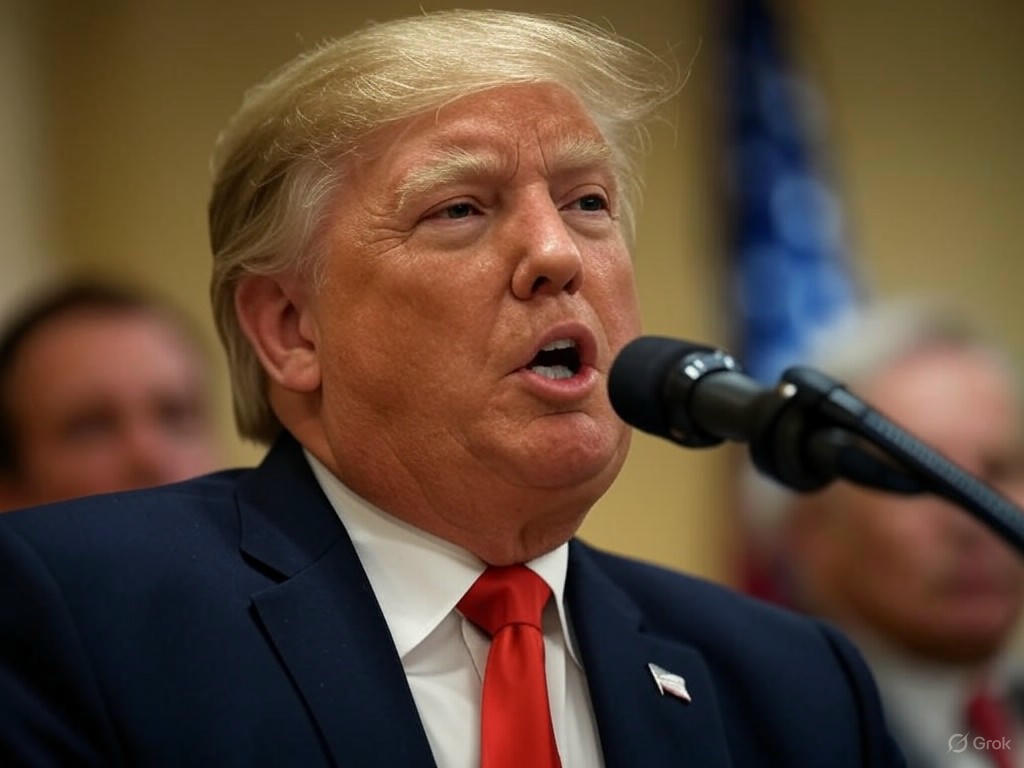Trump Slams Federal Reserve Chair Over Interest Rate Policy in Heated Critique
In a fiery outburst that has sent ripples through the financial world, former President Donald Trump has publicly criticized Federal Reserve Chairman Jerome Powell, branding him as incompetent for his handling of interest rate policies. The sharp remarks, made during a recent public address, underscore a growing tension between political leaders and the central bank, reigniting debates over the Fed’s independence and its role in shaping the nation’s economy. Trump’s comments come at a time when the U.S. economy is grappling with inflationary pressures and uncertainty, with many businesses and consumers eager for relief through lower borrowing costs.
The former president’s frustration appears to stem from the Federal Reserve’s cautious approach to slashing interest rates, a move Trump believes is essential to stimulate economic growth. He argued that Powell’s reluctance to act swiftly is stifling business investment and burdening American families with higher loan and mortgage costs. Trump’s choice of words was particularly striking, as he did not hold back in questioning Powell’s judgment, echoing sentiments shared by other prominent figures in his circle. Notably, Vice President JD Vance and Commerce Secretary Howard Lutnick have also voiced concerns over the Fed’s current stance, accusing it of being out of touch with the needs of everyday Americans. This collective criticism from high-ranking officials suggests a coordinated push to pressure the central bank into rethinking its strategy.
The timing of this attack is significant, as the Federal Reserve faces mounting scrutiny over its balancing act between curbing inflation and avoiding a potential recession. Economists are divided on whether a rate cut would be a silver bullet for the economy or if it risks fueling further price increases. While Trump and his allies advocate for immediate action, others warn that lowering rates prematurely could undermine long-term stability. The Fed, under Powell’s leadership, has maintained that its decisions are data-driven, prioritizing economic indicators over political demands. This clash of perspectives highlights a broader struggle over who ultimately steers the direction of monetary policy—elected officials or an independent institution tasked with safeguarding financial health.
Beyond the rhetoric, Trump’s comments have sparked discussions about the potential implications for markets and investor confidence. Some analysts fear that such public disputes could erode trust in the Federal Reserve’s autonomy, creating uncertainty at a time when clarity is desperately needed. Others, however, see this as a necessary wake-up call for the Fed to align more closely with the administration’s economic priorities. As businesses brace for potential policy shifts, the debate over interest rates is likely to intensify in the coming months, with both sides digging in their heels.
As this saga unfolds, one thing is clear: the relationship between political leadership and the Federal Reserve remains a contentious battleground. Whether Trump’s harsh words will lead to tangible change or simply add fuel to an already heated discourse remains to be seen. For now, all eyes are on Powell and his next move, as the nation waits to see if economic relief is on the horizon.


